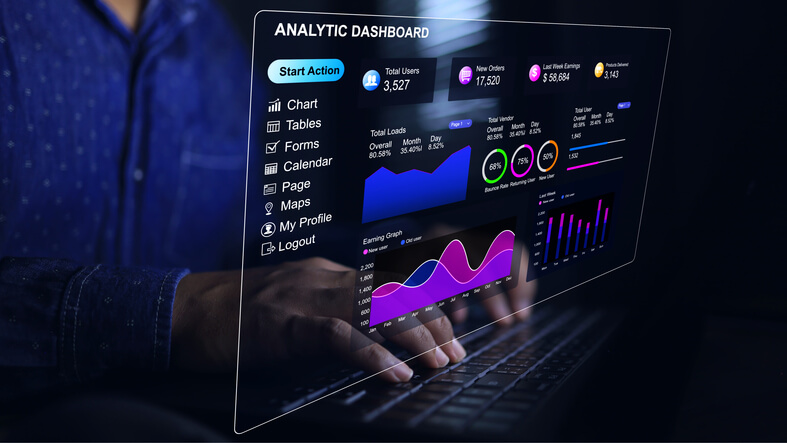(Short Summary) TL;DR: As third-party cookies disappear, digital marketers must pivot to first-party data and privacy-first strategies. This article explains how to implement effective cookieless marketing strategies by leveraging customer trust, contextual targeting, and new technologies to keep campaigns successful without compromising user privacy.
Why are we embracing cookieless marketing strategies? As digital privacy gains ground, the end of third-party cookies is reshaping how marketers track and reach audiences. Safari and Firefox already block third-party cookies. The shift, spurred by growing privacy regulations like GDPR and CCPA, challenges long-held advertising tactics.
The way forward requires a different approach; let’s explore some cookieless marketing strategies to adopt during this transition.
Goodbye Cookies, Hello Innovation
What does a “cookieless future” mean for digital marketers? Third-party cookies are disappearing. Marketers must now use first-party data, contextual ads, and privacy-first tools to reach audiences ethically and effectively. Without third-party cookies, marketers lose behavioural targeting and cross-site retargeting. Attribution becomes murkier, and personalization grows harder, especially for first-time visitors.

First-Party Data: The New Gold Standard
In the current industry, first-party data marketing is critical. Brands that collect and use it effectively will retain the upper hand.
How can businesses use first-party data for marketing in 2025? Collect consented data via your website, CRM, or surveys. Use it to personalize campaigns, segment audiences, and analyze behavior through tools like GA4.
Here’s why it matters:
- Privacy & Trust: Users prefer brands that are transparent and respectful. Ethical data practices build loyalty.
- Personalization: You can still tailor content using user actions on your site, like browsing or purchase history.
- Stronger Engagement: First-party data fuels newsletters, loyalty programs, and community interaction, leading to long-term relationships.
Brands should encourage account creation, use opt-in forms, and create value-exchange tools like quizzes and polls to collect rich, voluntary data. A fun skincare quiz, for instance, could help match users with products and build your database at the same time.
Effective Cookieless Marketing Strategies That Work
What are effective cookieless marketing strategies after third-party cookies? Contextual ads, CRM segmentation, AI modeling, server-side tracking, and platforms like Facebook or Google using logged-in user data.
Here’s a breakdown of digital marketing strategies gaining traction:
- Contextual Advertising: Target content, not people. Show running shoes on fitness blogs, not based on user history, but on page context.
- CRM & Email Campaigns: Segment users by actions (e.g., abandoned carts) and send hyper-relevant messages that are privacy-compliant and high-performing.
- AI Predictive Modeling: Use machine learning to forecast behavior based on first-party data instead of personal tracking.
- Identity Solutions: Focus on known identifiers (email/login). Tools like Unified ID 2.0 or Google’s Privacy Sandbox enable ethical personalization.
- Walled Gardens: Platforms like Google and Meta offer rich targeting options using their logged-in user bases. Complement with direct partnerships or data-sharing alliances.
- Server-Side Tracking: Use Facebook Conversion API or GA4 server-side tagging to collect data without browser limitations, still requiring consent, but improving accuracy.
- Zero-Party Data: Encourage users to tell you what they want. Polls, quizzes, and feedback forms yield valuable, voluntarily provided insights.

GA4: Analytics Built for This Era
GA4 is Google’s answer to the cookieless world. Unlike Universal Analytics, GA4 is event-based and supports cookieless measurement, AI modeling, and privacy controls.
It allows marketers to:
- Track across platforms and devices using consented data.
- Use predictive insights (like churn probability) to guide strategy.
- Retarget users through Google Ads without third-party cookies.
Google Analytics for SEO also integrates with server-side tracking and supports consent mode, essential for compliance in strict regions.
Privacy Laws Are Reshaping Marketing Education
Will privacy laws in 2025 affect digital marketing training and tactics? Yes. Privacy laws demand new skills: ethical data use, compliance, and privacy-first tools are now core to digital marketing training.
Marketing teams are now expected to understand data consent, ethics, and analytics tools like GA4. Ongoing education, whether via certifications, workshops, or formal programs, is essential to stay ahead of evolving laws. Investing in a comprehensive Digital Marketing Diploma ensures success with privacy-first strategies, data platforms, and compliance frameworks.
Are you ready to take charge and begin your Digital Marketing Diploma
Contact Cumberland College for more information now!
Frequently Asked Questions
Question: What does a “cookieless future” mean for digital marketers?
Answer: Third-party cookies are disappearing. Marketers must now use first-party data, contextual ads, and privacy-first tools to reach audiences ethically and effectively.
Question: How can businesses use first-party data for marketing in 2025?
Answer: Collect consented data via your website, CRM, or surveys. Use it to personalize campaigns, segment audiences, and analyze behavior through tools like GA4.
Question: What are effective cookieless marketing strategies after third-party cookies?
Answer: Contextual ads, CRM segmentation, AI modeling, server-side tracking, and platforms like Facebook or Google using logged-in user data.
Question: Will privacy laws in 2025 affect digital marketing training and tactics?
Answer: Yes. Privacy laws demand new skills: ethical data use, compliance, and privacy-first tools are now core to digital marketing training.
Also Asked
1. Why are third-party cookies being phased out?
Third-party cookies are being retired due to growing privacy concerns and regulations like GDPR and CCPA. These cookies track users across sites without explicit consent, which conflicts with modern standards of data transparency and user control.
2. What are examples of cookieless marketing strategies?
Examples include contextual advertising, first-party data collection via opt-ins or quizzes, server-side tracking with tools like GA4, and predictive modelling using AI based on consented data.
3. How does first-party data improve digital marketing?
First-party data provides accurate, permission-based insights. It helps personalise messaging, segment audiences, and build trust—all without relying on invasive tracking.
4. Is Google Analytics 4 (GA4) cookieless?
GA4 supports cookieless tracking via machine learning and consent mode. While it can still use cookies when permitted, it’s built to handle privacy-compliant, event-based tracking with or without cookies.
5. What skills are essential for marketers in a cookieless world?
Marketers must understand privacy laws, ethical data practices, server-side analytics, audience segmentation, and tools like GA4. Enrolling in a Digital Marketing Diploma is one way to acquire these skills.
6. Can you still do retargeting without cookies?
Yes, through alternative methods like identity resolution (email logins), CRM-based segmentation, and platform-specific targeting using walled gardens like Google or Meta.
7. What’s the difference between first-party and zero-party data?
First-party data is collected through user interactions with your site or app (e.g., page views, purchases), while zero-party data is explicitly shared by users (e.g., quiz answers, preferences).




